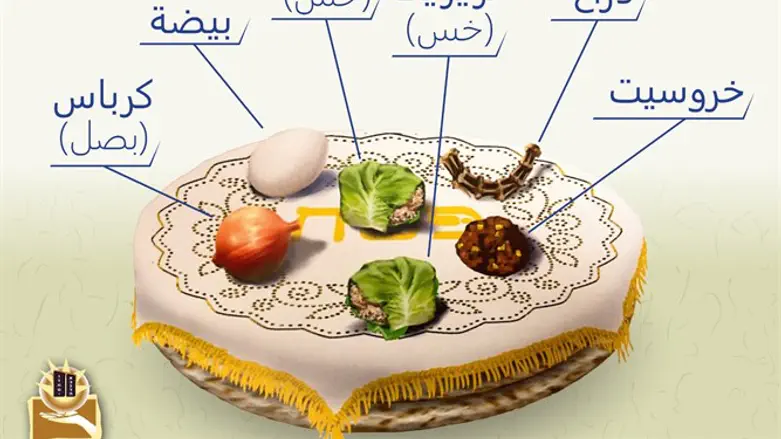
Just over a year ago, Yad L’Achim established “Shorashim” (Roots), a program designed to connect Jews assimilated into Arab families with their heritage. The Jews they were hoping to reach were the descendants (via the maternal line) of Jewish women who had married Arab Muslim men, who are indisputably Jewish according to halakhah (Jewish law).
Shorashim obtained its initial information from family members of these lost Jews, whose relatives had since left the Arab world and come to live in Israel. In many cases they were eager to provide Yad L’Achim with the information, hoping that the organization would succeed in bringing them back to their people.
Shorashim has four permanent employees working in its office, all of whom are fluent in Arabic, and they set out to contact these lost Jews and try to spark their interest in their Jewish heritage. Their efforts received a boost with the dissemination of two videos made by the Jewish singer Ziv Yehezkel, who was born to Iraqi parents and sings in Arabic. In his songs, he begged lost Jews to return to their people, and the songs triggered a wave of requests to Shorashim from relatives begging the organization to trace their lost family members, giving them any information they had that might be of help.
Shorashim set up a dedicated website in Arabic, and within a relatively short period of time, thousands of Jews from Arab countries were accessing it and even attending virtual Torah classes over Skype and learning Torah with study partners.
“Shorashim has three concentric circles of activity,” said Daoud, one of the organization’s activists. “The outer circle has around 2,000 members – these are Jews who maintain sporadic contact with us, and we send them greetings before the Jewish festivals and so forth. The middle circle has around 400 Jews in it, those who want more connection with us. They visit our website regularly to look for authentic and contemporary Jewish material.”
“In the inner circle are around 60 Jews who regularly ‘attend’ Torah lessons online, or study Torah one-on-one using Skype. We send them Torah literature and religious articles such as tefillin (phylacteries), mezuzot (a scroll with Torah verses placed on the doorpost), and so forth. These Jews have become a ‘virtual family’ who are all seeking to reconnect with their religion and heritage.”
This year in advance of Pesach (Passover), Yad L’Achim published a special haggadah printed in Arabic – “in which the entire content is translated into Arabic including the Biblical verses, and also translated into modern Hebrew, along with explanations and commentaries.”
Shorashim initially planned to mail out copies of the haggadah to Jews they are in contact with who live in Arab countries, as well as those living in Arab towns and villages in Judea and Samaria. However, due to the coronavirus epidemic, they were unable to do so, and had to suffice with sending a printable PDF via email. They had also planned to send matzah to these Jews, via third party contacts, and this too fell through.
"We are in contact with Jews from Libya, Tunisia, Lebanon, Jordan, Iraq, and Yemen,” said Daoud, “but only the Jews from Iraq received matzah from us. And that was only because of the assassination of Soleimani, a few months ago. When that happened, we realized that the situation in Iraq was likely to spiral out of control, so we rushed to send matzah to a Jewish family in Mosul we were in contact with, so that they could distribute it to the best of their ability.”
“The matzah arrived just before a strict curfew was imposed in Iraq, and for those Jews who received it, it was the first time that they were able to celebrate Pesach properly. Unfortunately, due to the coronavirus epidemic, the matzah we sent to Jews in other countries did not reach them before the festival, but at least they were able to print out and read the special haggadah and feel a sense of freedom.”